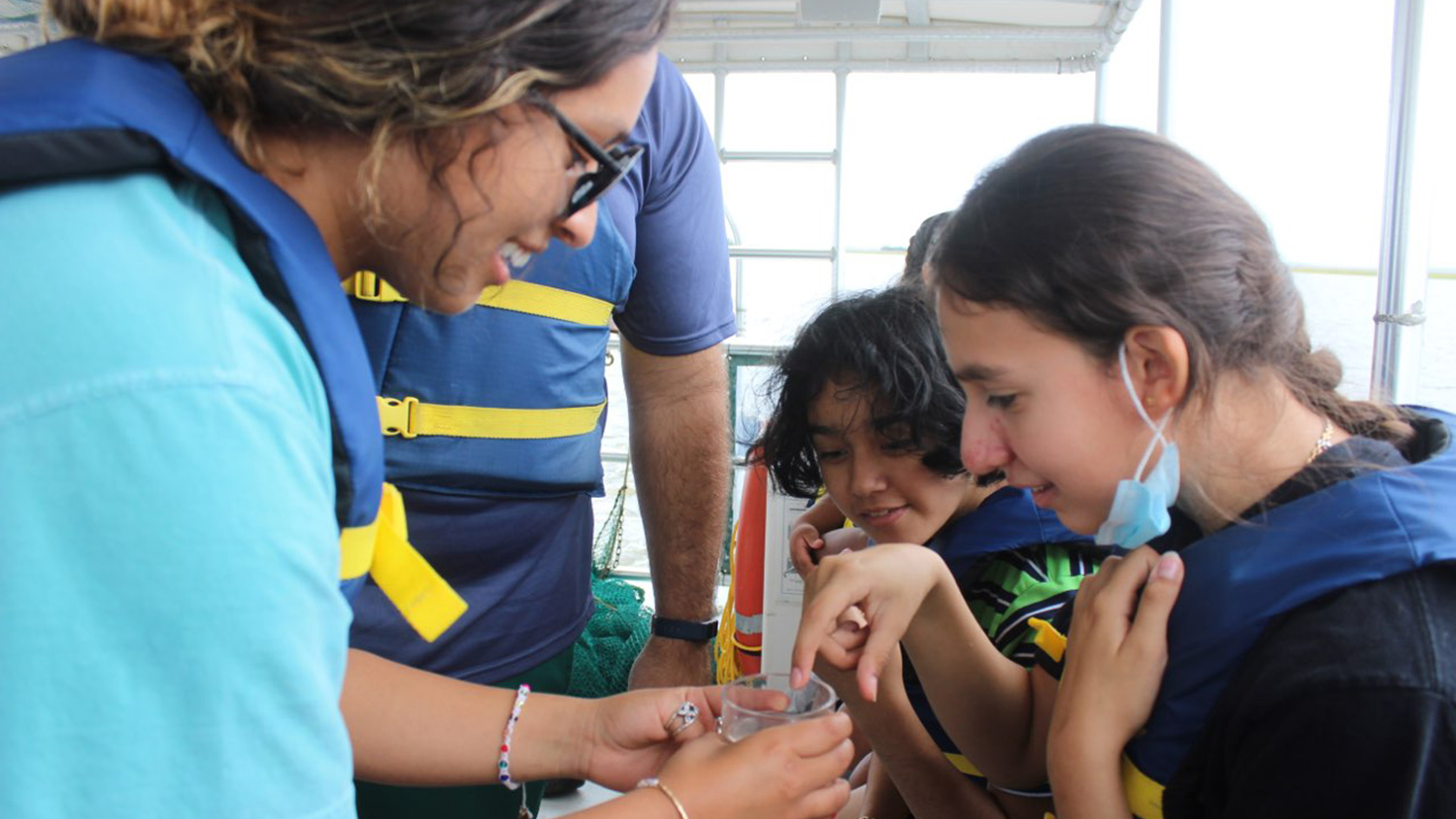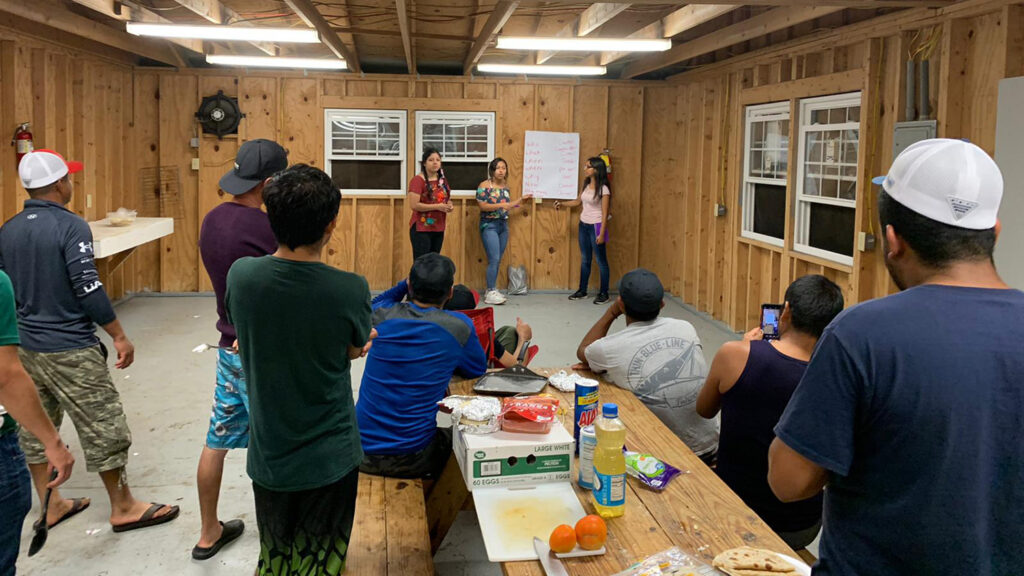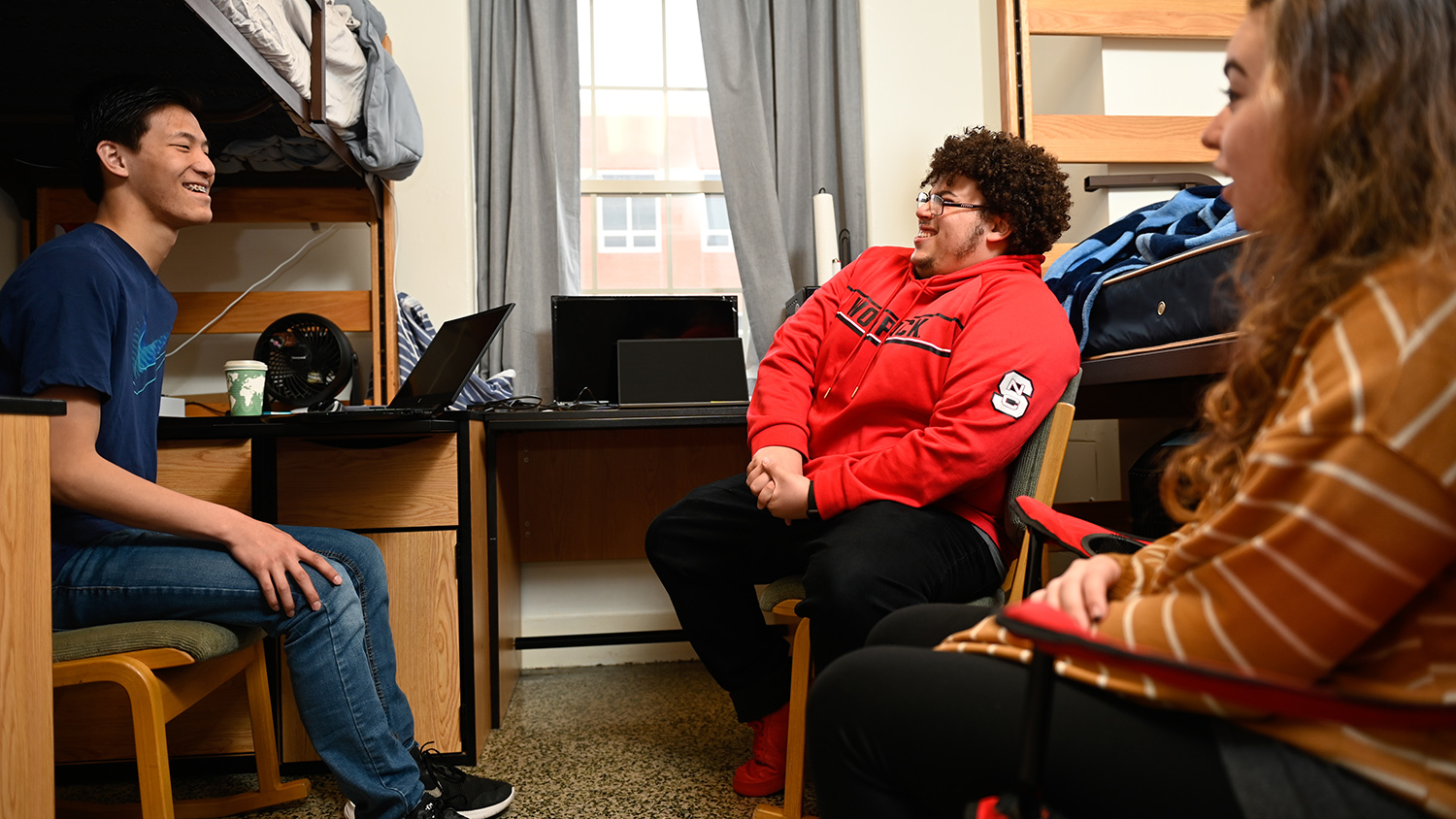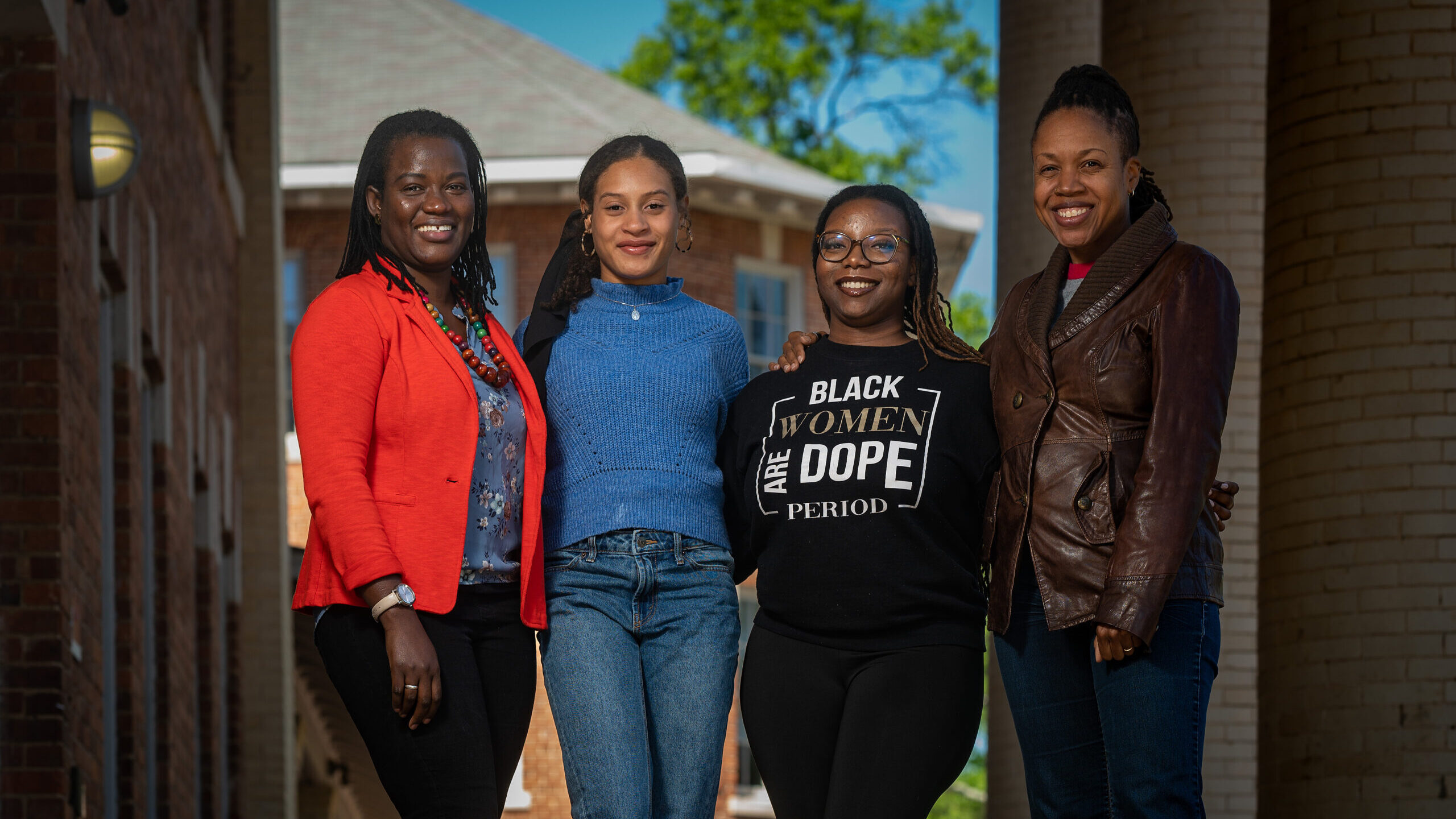From The Classroom to The Field
Social Work Intern Bridges Educational Gap for Migrant Farmworkers, Families

NC State sophomore Natalie Garcia-Franquiz interned at the South Carolina Department of Education’s Migrant Education Program for 10 weeks this summer. In that time, the social work major provided free academic support to migrant farmworkers and their families who came mostly from Latin America to pick peaches, watermelons and tobacco, among other crops, under the hot Carolina sun.
Garcia-Franquiz knows well the plight of immigrants and migrant workers. Both her parents emigrated from Mexico. When her dad arrived in the U.S. at age 15, he worked first on a peach farm in Georgia then on a tobacco farm in North Carolina.
Recalling her internship, Garcia-Franquiz hopes she helped migrant families realize education can be their ticket out of a lifetime of following the harvest and working in the fields.
As one of the first in her family to attend college, she wants to use her degree to help members of the Latinx community achieve their dreams.
We caught up with Garcia-Franquiz to learn more about her internship, social work major, goals after graduation and internship advice.
Why did you choose to major in social work and what is your main area of focus?
Social work felt like home. When I attended my first in-person social work class, I met students who share my passion to help improve communities, advocate for others and fight against social injustice. Social work enables me to unleash my interpersonal, leadership and advocacy skills.
I am exploring and deepening my understanding of the many areas within social work rather than focusing on a specific area. However, I am leaning toward education, which is the pathway to success.
Why did you choose this internship?
I grew up in an immigrant family (her dad emigrated from San Felipe, Guanajuato; her mom from Mexico City) and within the Latinx community in Lenoir, North Carolina. Hearing and witnessing stories from those around me about harsh living conditions and low wages sparked a fire in me to help them. I chose this internship because it focused on uplifting, empowering, advocating and being a voice for my community.

What were some of your primary responsibilities during the internship?
I traveled one to three hours daily to tutor families or teach English classes to more than 25 farmworkers for an average of 10 classes a week. I also uploaded weekly English lessons on the Migrant Education Program’s Facebook page.
Additionally, I assisted at events and activities for migrant families by providing such services as transportation, and mentored more than 20 migrant children on field trips. And I enrolled farmworkers in educational programs and provided them with care packages.
I also completed three blogs and weekly online surveys and helped produce a documentary.
What was your favorite part of the internship and why?
I most enjoyed teaching English to the farmworkers. Seeing the way their faces lit up during class filled me with joy. Teaching them the basic phrases and words necessary for them to navigate throughout their daily lives, like ordering food, was gratifying.
What were the challenges and rewards of the internship?
The emotional and mental roller coaster I experienced working with migrant workers and families was challenging, as was knowing I can’t help all people overcome their struggles. The workers’ and families’ appreciation, however, was rewarding.
What surprised you?
I learned the importance of parental support to the youths’ learning experience. I witnessed repeatedly how the lack of nurturing and the absence of parents, who worked long hours, adversely affected the youth.

How did you juggle the internship and your studies?
I developed time management skills, created a balance between my internship responsibilities and studies, and designed a strict schedule to stay on track.
How will the internship enrich your academic experience?
The internship educated and informed me about the history of migrant farmworkers. It exceedingly advanced my Spanish skills, which will benefit my Spanish minor. Additionally, I gained advocacy and social skills I will use in college and beyond. Teaching English gave me the knowledge and experience to one day teach it abroad.
What’s next for you? How do you plan to use your degree and experience in the future?
I want to help improve, educate and provide myriad resources and opportunities to the Latinx community. That, in turn, will form empowered and sustainable groups. I am particularly motivated to help the youth because they are the future.
In addition to education, I would like to explore using my degree in other fields like policymaking, which is a great way to prompt change.
What advice would you give other students seeking an internship?
Don’t limit yourself to one internship. Take advantage of myriad opportunities to reach your full potential.
Would you do it again?
YES! This internship was a once-in-a-lifetime opportunity that changed my life. I learned life lessons and gained experience being with migrant farmworkers and families. Also, it provided me with lifelong friendships, positive mentors and important skills that have shaped me into an improved version of myself. It gave me a taste of adulthood.
note: Social Work majors have many opportunities to gain first-hand experience through high-impact practices, including self-guided internships. They also participate in a semester-long field practicum, supervised by a social work practitioner, during their senior year.
- Categories:


